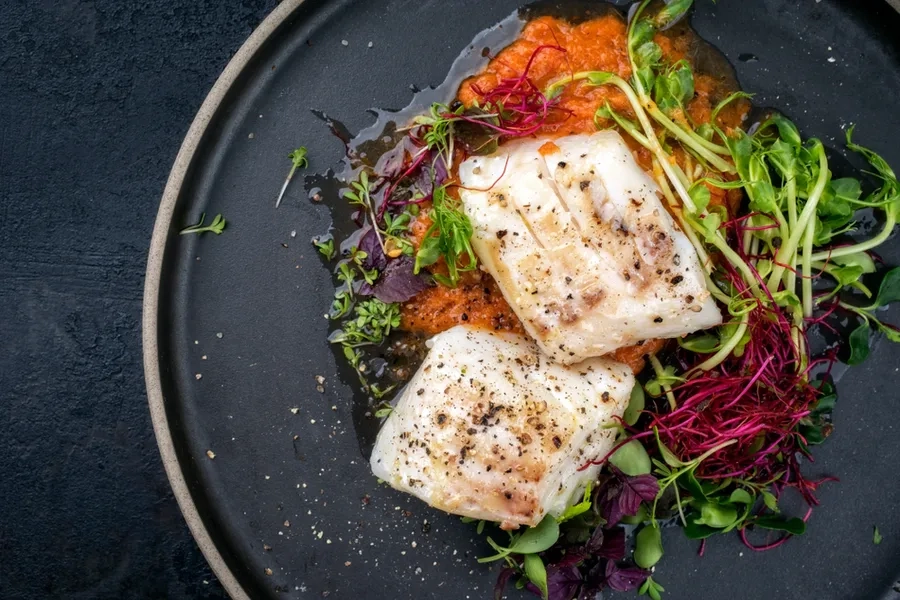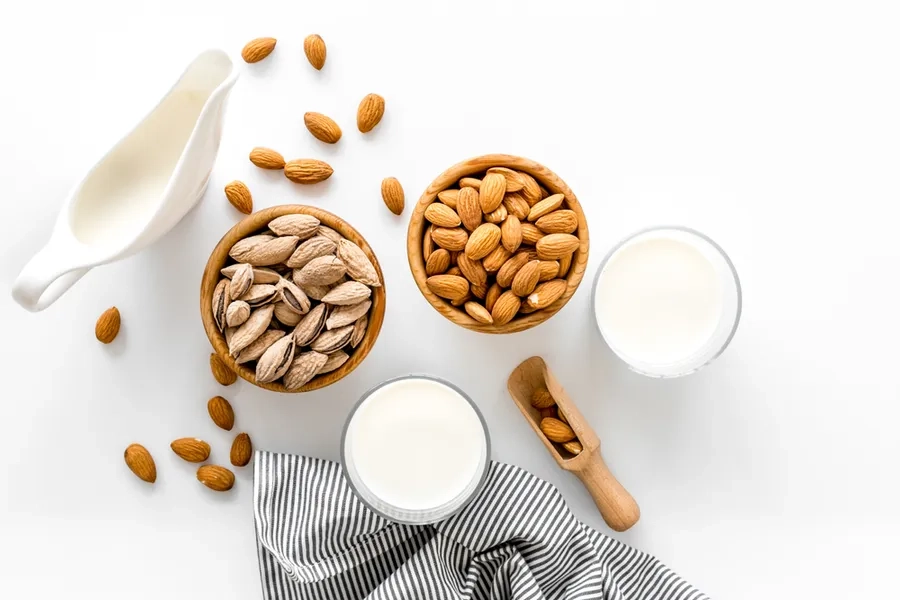Exploring Top Natural Iodine Sources for Health

While iodine is readily available in North American diets, deficiency remains a risk in some regions. To address this, incorporating natural sources of iodine such as eggs, lima beans, seaweed, tuna, prunes, cod, dairy, iodized salt, shrimp, spices and herbs, vegetables, and fruits is recommended.
Iodine stands out as a crucial mineral vital for maintaining our health, although it often remains overlooked in discussions. This mineral, essential for proper bodily function, is fortunately readily available in North American diets, primarily due to its inclusion in table salt—a staple in American households.
However, despite this widespread availability, it's important to note that a significant portion of the population, approximately one-third, faces the risk of iodine deficiency, particularly prevalent in regions like Europe where soil iodine content is low. Such deficiencies can lead to serious health complications, including thyroid disorders like goiter and hypothyroidism, characterized by symptoms such as fatigue, muscle weakness, and weight gain. It's imperative to consult healthcare professionals before considering iodine supplements, as excessive intake can be harmful.
To ensure adequate iodine intake, it's beneficial to incorporate natural sources of iodine into your diet. Here's a curated list of some of the best sources to consider!
Eggs
Eggs stand out for their remarkable versatility, making them a staple in various culinary creations. Whether enjoyed alone, paired with toast, nestled in a burrito, or integrated into elaborate recipes, eggs offer a multitude of delicious options. Their nutritional value further enhances their appeal, as they are rich in vitamin A, vitamin D, zinc, calcium, antioxidants, protein, and iodine. Notably, the yolk, in particular, serves as a significant source of iodine, owing to its presence in chicken feed. However, it's essential to recognize that iodine content in eggs may vary depending on the iodine levels in the feed. On average, a large egg contains around 24 micrograms of iodine, contributing approximately 16% of the recommended daily intake. With each egg boasting fewer than 100 calories, they also serve as a guilt-free snack option, such as a satisfying hard-boiled egg. So, next time you ponder your breakfast choices, consider indulging in the nourishing goodness of eggs!
Lima Beans
Lima beans, also known as phaseolus lunatus, butter beans, sleva beans, or Madagascar beans, boast an array of aliases, reflecting their diverse cultural significance. Despite their lesser-known status, these beans deserve recognition for their nutritional value and culinary versatility. Often featured in Native American succotash alongside corn, lima beans lend themselves well to various dishes, offering endless opportunities for culinary exploration. As members of the legume family, lima beans share many health benefits, including high fiber, magnesium, and protein content, while remaining low in fat. Notably, they serve as an excellent iodine source, particularly beneficial for vegans and vegetarians. A one-cup serving of cooked lima beans provides approximately 16 micrograms of iodine, contributing about 10% of the recommended daily intake. However, it's essential to acknowledge the variability in iodine content due to factors such as soil composition, irrigation water, and fertilizers, underscoring the importance of dietary diversity for consistent iodine intake.
Seaweed
Seaweed may not be a mainstream snack choice for many, but its health benefits are substantial, especially as the most potent natural source of iodine among foods listed here. Depending on the type, seaweed contains varying iodine levels, with some varieties boasting the highest concentrations. According to Dr. Axe, a single sheet of dried seaweed can contain anywhere from 19 to 2,984 micrograms of iodine, showcasing its significant range. However, caution is warranted, as excessive consumption can lead to thyroid dysfunction, particularly for susceptible individuals, as highlighted by Healthline.
Among the most common types of seaweed rich in iodine are nori, wakame, and kombu kelp. Nori, a red seaweed often used in sushi rolls, contains the lowest iodine levels among the trio, ranging from 16 to 43 micrograms per gram. Wakame, a brown seaweed known for its slightly sweet flavor and frequent appearance in miso soup, offers approximately 66 micrograms of iodine per gram, with variations depending on its origin. Kombu kelp, another brown seaweed widely used in Japanese cuisine, stands out as the iodine champion, with up to 2,984 micrograms per gram, typically found in powder or dried sheet form and utilized in dashi soup stock.
Tuna
Tuna, a popular seafood choice cherished for its mild taste and affordability, presents numerous health benefits, including its rich iodine content. According to Dr. Axe, a standard 3-ounce serving of canned tuna, equivalent to about one can, contains 17 micrograms of iodine, providing approximately 11% of the daily recommended intake. Interestingly, tuna's iodine concentration inversely correlates with its fat content, with leaner varieties boasting higher levels. This characteristic distinguishes tuna from fattier fish types like cod, as explained by Healthline.
Prunes
Prunes, while not universally favored as a snack, offer remarkable health benefits beyond aiding digestion. High in fiber, sorbitol, and various nutrients, prunes also serve as a valuable iodine source for vegans. Just five prunes contribute 13 micrograms of iodine, covering 9% of the daily recommended value. Healthline underscores prunes' nutritional profile, citing their abundance in vitamins K and A, potassium, and iron, which collectively support heart health, colon cancer prevention, and weight management.
Cod
Cod ranks closely behind seaweed as a top iodine-rich food source, offering substantial amounts in just a modest serving. Dr. Axe highlights that a 3-ounce portion of cod contains 99 micrograms of iodine, providing approximately 66% of the daily recommended intake—a noteworthy contribution achievable with a single meal. Notably, the iodine content in cod varies based on factors such as farming methods and geographical origin, a characteristic shared with other foods on this list. Praised by Healthline for its versatility and mild flavor, cod emerges as a low-fat, nutrient-dense option rich in iodine and other essential minerals.
Dairy
Dairy products play a significant role in the average diet, serving as a major iodine source due to their composition and production methods. According to Healthline, the iodine content in dairy varies widely based on factors such as cattle feed and milking practices. A study conducted by the Boston University School of Medicine found iodine levels ranging from 88 to 168 micrograms per cup across 18 milk brands tested in the Boston area. Particularly noteworthy dairy sources for iodine include milk, buttermilk, paneer, curd, and cheese, with mozzarella cheese standing out as an iodine-rich option. For instance, a cup of milk delivers 59 to 112% of the daily iodine requirement, while yogurt offers approximately half that amount. Although measuring iodine content in cheese poses challenges, cottage cheese and cheddar cheese provide substantial contributions, as noted by Healthline.
Iodized Salt
Salt is a ubiquitous ingredient in many of the foods we consume, especially in prepackaged meals or restaurant dishes. While excessive salt intake is generally discouraged, it's important to incorporate iodized salt into our diet in moderation, particularly for thyroid health. Fortunately, iodine is commonly added to table salt, ensuring most individuals in developed countries receive adequate iodine intake, thus preventing iodine deficiency, which is exceedingly rare. However, it's prudent to be mindful of non-iodized salt variants, necessitating careful scrutiny of product labels.
Shrimp
Shrimp, a popular appetizer known for its crowd-pleasing taste, is not only rich in protein and low in calories but also serves as a noteworthy source of iodine. According to Healthline, seafood like shrimp absorbs iodine naturally present in seawater, contributing to its iodine content. A 3-ounce serving of shrimp contains approximately 35 micrograms of iodine, representing a significant 23% of the daily recommended intake.
Spices and Herbs
Spices and herbs play indispensable roles in culinary endeavors, not only enhancing flavor but also offering health benefits, including iodine supplementation. StyleCraze highlights certain spices like cinnamon, along with black and white pepper, as sources of iodine. Similarly, herbs such as fennel and hyssop also contain iodine, providing additional avenues to incorporate this essential nutrient into one's diet.
Vegetables
Vegetables constitute a vital component of a balanced diet, offering a plethora of essential nutrients, including iodine. According to StyleCraze, various vegetables such as spinach, soybeans, artichokes, turnips, potatoes, legumes, peas, beans, corn, broccoli, and cauliflower derive iodine from the soil they grow in. However, iodine levels in these vegetables may vary depending on the iodine content of the soil, emphasizing the importance of dietary diversity. Importantly, cooking these vegetables does not diminish their iodine content, ensuring optimal nutrient retention.
Fruits
Similar to vegetables, fruits play a crucial role in promoting overall health, offering an array of antioxidants, vitamins, minerals, and iodine. StyleCraze recommends incorporating fruits such as strawberries, cranberries, figs, pineapples, apples, coconuts, grapefruits, kiwis, rhubarbs, mangoes, dates, and apricots into one's diet to boost iodine intake. These fruits not only provide sweetness and flavor but also deliver essential nutrients necessary for maintaining optimal health.






